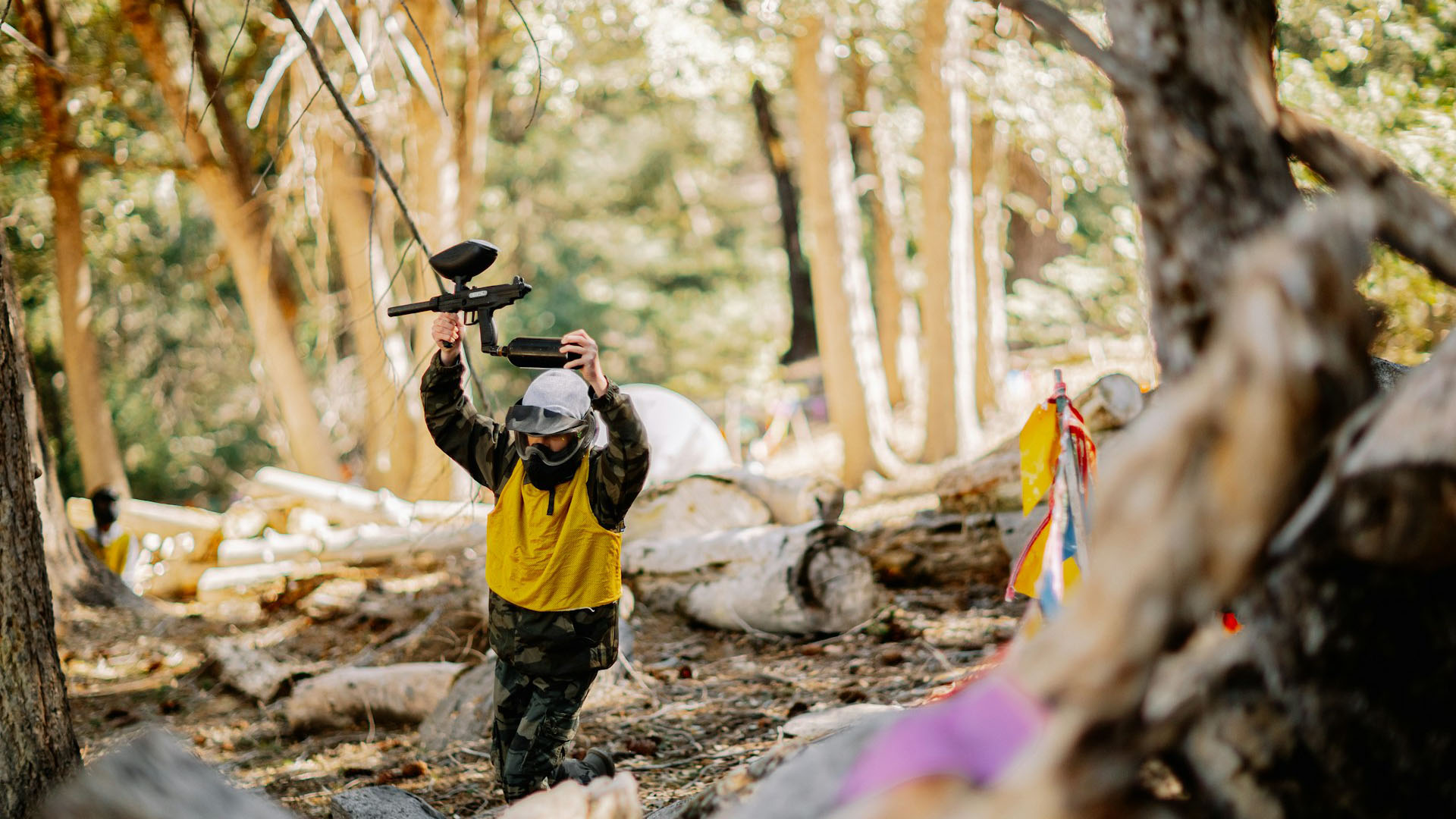Looking to switch? Talk with our team to get started and move your existing bookings and client data to Resova.
Modern Museum Marketing: The Ultimate Guide
No matter if your museum showcases relics from the past or innovations of today, one thing is clear: you take great pride in every exhibit, installation, and piece on display.
But do you take the same pride in your museum marketing?
If your current strategy is obsolete, it’s time for a refresh. Welcome to the ultimate guide to revitalizing your museum marketing ideas for the modern age. With helpful marketing facts and strategies, we’ll share how you can leverage several digital channels to make your marketing a masterpiece.
The Importance of Marketing for Museums
Museums faced no shortage of challenges in 2023. According to a recent survey, only one-third of museums have restored their pre-pandemic attendance. The majority only see 71% of the attendance they saw in 2019.
What’s caused these numbers to drop?
An article by the American Association for State and Local History (AASLH) cites financial insecurity and lack of community support as two of the top five reasons why museums close.
If the same obstacles are threatening your museum, a robust digital marketing strategy can make a drastic difference. In fact, effective online campaigns can boost engagement and build your brand, helping to drive revenue and grow your community.
Today we’ll examine several digital marketing channels and walk you through some successful techniques your museum can capitalize on.
Email Marketing
Email is a low-cost, highly versatile platform for communicating with your target audience. If you’re already utilizing email for booking confirmations or receipts, you can leverage your customer contact information to your benefit—if you have the right strategy.
Strengths of Email Marketing
Email marketing is an ideal tool for enhancing customer engagement. For starters, emails can help reduce the chance of no-shows by reminding customers of their upcoming visits. However, an even more effective strategy is sending personalized email content regularly. By doing this, you can:
- Capture the interest of potential visitors
- Increase brand awareness
- Build customer loyalty
Email is also an excellent vehicle for upselling opportunities. For instance, you can turn a routine purchase confirmation into a chance for additional revenue by offering upgrades or higher-tier packages. You can also consider using email to announce upcoming events or build excitement around new promotions.
Challenges that Email Marketing Solves
If you’re hurting from expensive marketing investments that show little return, email marketing could be the solution you need to turn things around. Statistics show that email marketing has an average 4000% return on investment, meaning for every $1 you spend, you can expect up to $40 back.
Emails are also a great way to counter no-shows and missed sales opportunities via helpful reminder messages sent before the booking date. You can also reach former customers through email, encouraging them to return for updated exhibits and offerings.
SMS Marketing
Short message service (SMS), or text message, is a communication channel most of us use daily. To that end, let’s take a look at how you can leverage text messages to improve your museum marketing strategy.
Strengths of SMS Marketing
Text messages are the fastest way to reach your customers and, thus, the best option for conveying time-sensitive information. Don’t want your visitors to miss out on the last days of a limited-time installment? SMS marketing can be a game-changer.
SMS marketing can also be effective for tailored, personalized communications like birthday offers or customized recommendations. These types of marketing messages can feel especially personal because they’re sent directly to the device your customer keeps within arm’s reach.
Challenges that SMS Marketing Solves
Sometimes, customers can get distracted and leave without finishing their transaction when making an online purchase. In these “abandoned cart” scenarios, an SMS reminder is exceptionally helpful as it reaches the customer right away, no matter where they are.
Similarly, SMS communication is essential to providing customers with urgent updates, such as adjusted opening times or last-minute offers.
Social Media Marketing
Social media provides a platform where your museum’s community can blossom through shared customer experiences, recommendations, pictures and more. Let’s explore social media marketing in more detail.
Strengths of Social Media Marketing
With a strong social media presence, you can engage with customers in real time and encourage them to actively participate in your online community. For instance, you can ask customers to share:
- Pictures from their latest museum visit
- Details about their favorite exhibit
- Reasons why they enjoy visiting your museum
- Booking confirmations
You can then collect and leverage this user-generated content (UGC) to further promote your museum online.
Another way to benefit from social media is by collaborating with an influencer. This strategy enables you to expand your reach, tap into new audience segments and drive your social platforms’ growth.
Challenges that Social Media Marketing Solves
Your active social media channels can serve as an endless fountain of UGC. This is essentially free marketing content that can inspire other customers to visit your museum.
You can also harness social media platforms to gather reviews, especially if you’re a newer museum. Reviews are powerful in influencing new business and should be encouraged through social media channels to strengthen your reputation.
Website Marketing
Whether or not your customers book online, it’s important to leverage your website in your museum marketing strategy as it can play a key role in building your online presence and enhancing your customer experience.
Strengths of Website Marketing
By including SEO (search engine optimization) keywords in your website’s copy, you make it possible for online users to discover your museum. Whether they’re searching for your museum directly or running a general search for museums or activities in the area, a smart SEO strategy can help ensure you rank high in search engine results.
Additionally, by designing a clean, user-friendly website, you make it easy for customers to:
- Book a visit
- Read reviews
- Find other important information (like parking details and hours of operation)
And, when customers can easily navigate your website, they’re more likely to return to make repeat purchases.
Challenges that Website Marketing Solves
If you need to improve your visibility and accessibility on various devices, intelligent website design is your solution. An exceptional design will adapt to mobile devices, desktops and tablets, ensuring the information you need to convey is clear no matter what device your customers prefer.
Having trouble consolidating messaging across all of your marketing channels? Your website can serve as your central platform. By directing users to your website via social media, SMS or email, you can easily help your audience find all the information they need.
Museum Marketing Best Practices
When in doubt, the following list of museum marketing best practices will help you design marketing ideas for museums that elevate you above the competition.
- Respect opt-outs. Not everyone enjoys receiving marketing communications, no matter how brilliant they are. To that end, make sure to honor those who unsubscribe to avoid losing or frustrating customers.
- Consider your timing. Use timing to your advantage – send marketing communications during lunch hours when customers are more likely to see them. Additionally, consider how to leverage holidays and weekends to promote particular deals or events. Always avoid sending SMS messages outside of working hours to keep from disturbing your customers.
- Automate to save time and money. Automating messages to respond to specific actions, such as cart abandonment or a newsletter sign-up, reduces the manual labor on your end and ensures no opportunity to enhance your customer experience slips through the cracks.
Modernize Your Museum’s Marketing with Resova
By leveraging these digital marketing channels, you can take your museum marketing ideas and strategy to the next level—and Resova can help. Resova was founded on the idea that booking software should be powerful but simple to use. That’s why we offer a streamlined package full of dynamic tools designed to boost the growth of your business:
- Reduce cart abandonment rates, enhance your online identity and encourage social media sharing with Resova’s purpose-built marketing tools.
- Eliminate no-shows and leverage smart automation with text and email automation capabilities.
- Enjoy next-level museum ticketing software to simplify your operations and improve your customer experience from end to end.
Experience the difference Resova can make for your museum by starting your custom-tailored free booking website trial today.
Related Articles

Clubspeed Announces Major Platform Upgrade: Introducing Resova AI, Modernized Reporting, and RacingOS Ahead of IAAPA Expo
IRVINE, CA – Nov. 17, 2025 – Clubspeed, the global leader in venue management and booking solutions for activity centers, karting tracks, escape rooms, FECs, tours, and experience-based destinations, today announced its most significant product transformation to date. The company unveiled three major advancements designed to give operators deeper insights that will drive revenue, offer […]
Read More
Clubspeed Announces Key Senior Hires to Accelerate Customer Success and Market Growth
Irvine, CA — Sept. 11, 2025 — Clubspeed, the global leader in venue management software for karting, escape rooms, paintball, family entertainment centers, and other experiential venues, today announced the addition of three senior leaders: John Clark as Director of Product Support, Michael Boyd as Head of Engineering, and Fady Stephanos as Chief Operating Officer […]
Read More
Scale Your Paintball Business With Digital Marketing
Few outdoor activities offer as much pleasure and excitement as paintball, a sport that officially started in the 1980s and has recently skyrocketed in popularity. Stats show that 2.67 million Americans played the thrilling game in 2023 alone, revealing a healthy rise from 2021 on. Yet paintball business operators face several challenges, from sustaining a […]
Read More